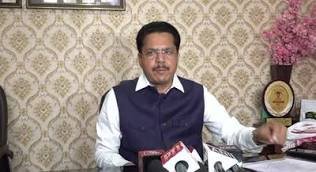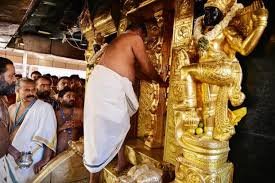Since the 2019 Assembly election, Maharashtra has experienced three administrations, three leaders, and four deputy leaders, reflecting the current crowded political environment in the state. While Maharashtra casts its crucial vote in the Assembly election today, the stakes remain incredibly high.
Various factors such as OBC consolidation, Maratha reservation, and the effects of cash doles like the Ladki Bahin Yojana could greatly affect the fortunes and outcome for the ruling Bharatiya Janata Party (BJP)-led Mahayuti as well as the Congress-led Maha Vikas Aghadi (MVA) vying for power.
Here are some crucial factors that could influence the outcome of the important polls between the Mahayuti and the MVA alliances, considered the biggest test since the 2024 Lok Sabha election:
The OBC factor
The aggregation of Other Backward Classes (OBC) votes is a crucial factor in the Maharashtra elections. As a member of the Mahayuti alliance, the Bharatiya Janata Party (BJP) has been focused on uniting non-Maratha voters, specifically targeting the OBCs.
Since the 1990s, the BJP has nurtured the OBC voter base by using the MADHAV formula, uniting the Mali, Dhangar, and Vanjari communities. The plan was to strengthen OBC backing and challenge the Maratha community’s influence, who were supporting the Congress at the time.
The Mahayuti plans to take advantage of OBCs’ concerns about their reservation share in schools and government roles with PM Narendra Modi’s ‘ek hain to safe hain’ slogan, fearing it will decrease with Marathas being added to the OBC category.
The BJP’s attempt to consolidate the OBC votes could offer a major benefit, particularly due to the substantial OBC voter population in the state. Nonetheless, the Mahayuti alliance faces a challenge in maintaining a delicate balance between the interests of the Maratha and OBC communities without isolating either one.
MVA’s eagles’ eye on Maratha voters
The Maratha community has been pushing for inclusion in the Other Backward Classes list, causing controversy for a while. The Mahayuti alliance’s conflicting position on this issue has caused the Marathas to feel estranged, resulting in the BJP losing every parliamentary seat in Marathwada during the recent Lok Sabha elections.
The Maha Vikas Aghadi (MVA) coalition, which includes the Congress, Shiv Sena (led by Uddhav Balasaheb Thackeray), and Sharad Pawar’s Nationalist Congress Party, is expected to gain from this dissatisfaction. The MVA has been increasingly outspoken in backing the Maratha community’s requests, which may influence Maratha votes in their direction. If the MVA wins, they pledged to introduce a detailed legislation to provide reservations for the Marathas, Dhangars, Lingayats, Muslims, and VJNT communities.
Clearly, the MVA aims to unify a larger group of voters in its support.
Read more: Within hours of bitcoin scam charges, ED swings into action to muddy Maharashtra poll waters
BJP-Congress’ fight for 86 may be crucial
One key feature of the Maharashtra Assembly election is the head-to-head competition between the BJP and Congress on 76 seats. The BJP believes they will secure more than 50 seats, which may play a key role in deciding the final result.
Recently, the Congress has not performed well in direct confrontations with the BJP. It has faced criticism and scrutiny from its partners in INDIA as well.
The rivalry between the BJP and Congress at Vidarbha’s 36 cotton belt seats will be fiercer.
The outcomes of these head-to-head battles will serve as a critical assessment for both sides, with the BJP’s success being essential for their goal of leading as the largest party and assisting the Mahayuti alliance in reaching the 150-seat threshold in the 288-seat legislature.













